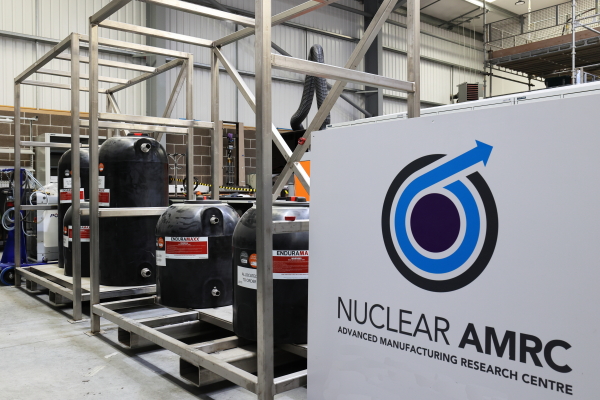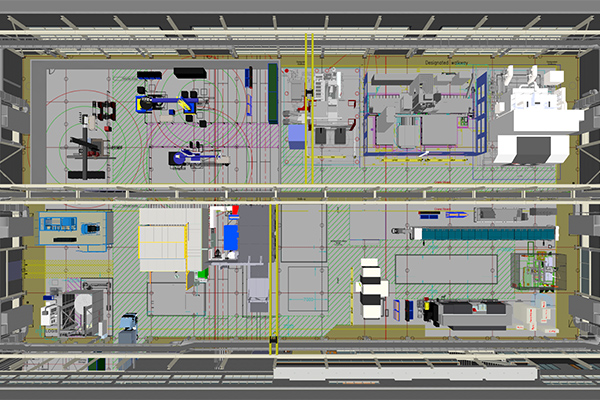Manufacturing engineering research at the Nuclear AMRC offers a multi-disciplinary approach to tackling challenges in the design and development of complex products and modular systems.
Our manufacturing engineers have extensive experience of shopfloor production, design for manufacturing, new product introduction and cost modelling. We are also developing new approaches for the off-site modular production of large-scale complex systems including new designs of small and advanced modular reactor.
We offer specialist capabilities in modular manufacturing techniques, which can significantly reduce construction risk across the nuclear sector and help deliver new power stations to schedule and cost. Our work focuses on applying and developing modular manufacturing techniques for nuclear applications including small modular reactor (SMR) and advanced modular reactor (AMR) programmes.
Core research areas
Design for manufacture – we can help you improve the manufacturing performance of a new product at the design stage, reducing production costs and risks. We review your design at an early stage of design development, so that you can avoid manufacturing problems and costly features as you enter production.
New product introduction – we understand the challenges of taking new concepts through prototyping and pre-production into full production. Our manufacturing engineers have extensive experience in regulated industries, and have successfully transitioned parts through the nuclear product life cycle. We also understand the difficulty of using the right tool for the right job, and can use our unique combination of manufacturing engineering research knowledge and supply chain data to help you to reduce costs, improve quality and meet target readiness levels.
Factory modelling – we can optimise or modify existing manufacturing facilities, or optimise the design of new facilities. We use a range of industry-standard software tools to model flow through a factory, to identify and eliminate potential bottlenecks, and develop complex scenarios plans to future-proof facilities against changing demand or product mix.
Through-life modularisation product structure – we are developing a systematic approach to the modularisation of complex assemblies, which can be used in the early design process and provide benefits throughout its service life. By considering factors such as design style, modules boundaries, interfacing methods and the degree of modularity required, we can reduce risk in manufacturing and construction, and simplify operations from installation to decommissioning.
Modular design tools – we are developing new principles of modular design based on user requirements, product life cycle and functional requirements. We are also developing a new approach to generating modules by clustering structures, systems and components according to user requirements for layout and plant flow.
Our capabilities also include:
- Advanced product quality planning (APQP) for nuclear applications.
- Design for modularisation, supported by prototyping and visualisation tools.
- Factory design and lean manufacturing.
- Product cost studies.
Equipment includes:
Modular demonstration platform

- Two demonstration modules providing a flexible platform for developing advanced technologies.
- Research focuses on identifying and resolving challenges in inter- and intra-module connections.
- Studies can address a module’s full life cycle, covering design, processing, transport and distribution, through usage to end of life.
Stratasys F270 3D printer
- Rapid prototyping to support the design process for modular assemblies.
- 305 x 254 x 305mm build volume.
- Four material spool bays – three for model and one for support.
Visualisation tools
- Visualise and interact with 3D models of designs through augmented and virtual reality.
- Allow better understanding of complex structures, identifying possible design flaws, and making real-time adjustments.
Software

- Selection of industry-standard software packages including Minitab.
- Applications in process engineering, factory simulation and six-sigma projects.



